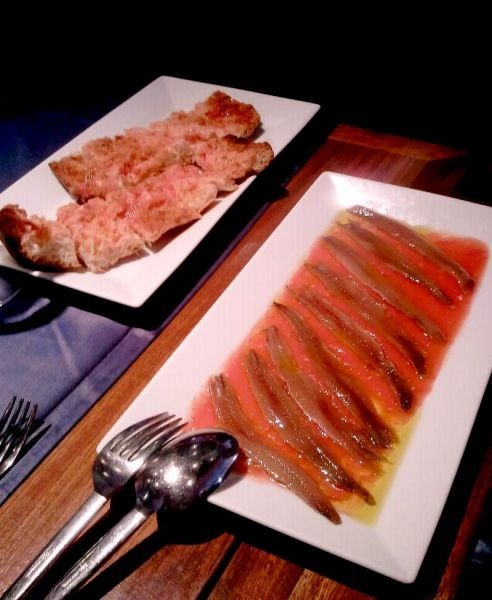Catalonia Without Michelin Stars
If I were a slavish devotee of the Spanish edition of the Guide Michelin — which I'm not, thank goodness — I would have missed what were quite possibly the three best meals I've had, in Spain or anywhere else, in the past month.
One was at El Motel, the superlative dining room at the Hotel Empordà in Figueres, a fabled establishment that recently celebrated its 50th anniversary. It is listed by Michelin, but with no stars or other indications of quality. What a joke! (Click here for more on El Motel.)
Even sillier, Eldorado in Sant Feliu de Guixols and the venerable Ca l'Isidre in Barcelona aren't even mentioned in the guidebook.
The original Eldorado opened in 1942, on the Rambla Vidal in the pleasant but nondescript beach town of Sant Feliu, as a café and tapas bar. Lluís Cruanyas, the son of the owner, later opened a small, more formal restaurant next door — which he dubbed Eldorado Petit.
He subsequently expanded to Barcelona, where Eldorado Petit grew into what many (myself included) considered the best restaurant in town. Cruanyas even opened a version of the restaurant in Manhattan, just before the 1992 Olympic Games shown a spotlight on Barcelona. Unfortunately, he misjudged the market here and the place closed several years later. More unfortunately, after Olympic-era civic renovations refocused much of Barcelona's attention in its coastal neighborhoods, Eldorado Petit — which was in the foothills — lost business and it, too, shuttered.
Today, Cruanyas, working with his son and daughter, owns a handful of places back where it all started, in San Feliu. One of these, on the site of his father's original café and his own first Eldorado
The food is elegantly simple, and based on the finest local ingredients. On my most recent trip, I had plump Sant Feliu anchovies in tomato coulis with pa amb tomáquet, "bread with tomato" (pictured at right), on the side; a heaping plate of peel- (or crack-) and-eat langoustines (saltwater crayfish) quickly boiled in seawater, then chilled with ice, and tasting vividly of the sea (pictured above right); some perfect little filets of red mullet, quickly fried; and a rack of improbably tender roasted local lamb with a little cake of trinxat, the Pyrenean specialty of potatoes mashed with cabbage and bacon. Everything was a right as could be.
A week or so earlier, I had had an even more impressive meal at Ca l'Isidre, near the bustling Avinguda Paral-lel in Barcelona. Proprietor Isidre Gironès is one of the most respected of the older generation of restaurateurs in the Catalan capital. He is particularly famous for the seamless, old-fashioned service he offers, for the quality of his raw materials (including wild game birds in season that he shoots himself), and for his kitchen's perfect no-frills cooking style.
Here, with a quartet of Californian friends who were briefly in town, I helped devour some of the city's
espardenyes, griddled and slightly caramelized; broiled langoustines, as good as Eldorado's, although cooked a little longer; squash blossoms stuffed with sobrasada (pictured), the spicy pâté-textured sausage of Mallorca; fried salt cod with white beans; cabbage rolls stuffed with braised oxtail; sweet little medallions of lambs' brains, breaded and fried; and one of Isidre's signature dishes, big ceps, roasted in parchment with an anointment of foie gras fat, then sliced tableside and sprinkled with sea salt. It was virtually an encyclopedia of simple Catalan delights, and the kind of thing that all those adventuresome one- and two-star restaurants scattered around the city can probably only dream of doing. (Photo courtesy of Flickr/buxeda)
(All photos courtesy of Colman Andrews, unless noted)

